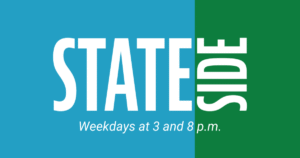South Florida Faces Uncertain Future Amid HIV Funding Cuts
Amidst the early months of 2025, a troubling trend has emerged in Broward County, Florida. The Pride Center, led by Robert Boo, identified four new HIV cases through its complimentary testing services at local venues. “If we weren’t testing, those four people could spread to four more, and it could quickly start spreading out of control,” Boo noted. As testing continues, the center’s crucial $350,000 grant is at risk, with no renewal in sight.
South Florida, already grappling with the nation’s highest HIV/AIDS rates, now faces severe challenges due to substantial federal funding reductions under the Trump Administration. These cuts impact research, prevention, and treatment efforts, causing alarm in local communities.
Since January, significant financial support has been withdrawn from Florida’s major universities, with nearly $30 million in research grants terminated. These funds previously supported crucial interventions for reducing HIV risk among Hispanic youth and increasing PrEP enrollment among Latino gay men.
The Florida Department of Health has seen personnel reductions in its HIV program, raising concerns about the state’s ability to monitor and prevent disease spread. “These are the people who oversee statistical reporting of HIV,” explained Dr. Elizabeth Sherman, emphasizing the critical role of surveillance in managing HIV transmission.
In a recent turn of events, a federal judge temporarily blocked the administration’s move to cut $495 million from state budgets for infectious disease management, following a lawsuit by 23 states and the District of Columbia. However, the threat of funding loss remains palpable.
Local health clinics are also witnessing indirect effects of these policies. Foreign-born patients express fears of deportation, leading to avoidance of necessary medical appointments. “People are not picking up their medications. They are not coming to get their labs drawn,” Sherman reported, highlighting the impact on patient health and public safety.
With over 128,000 individuals living with HIV in Florida, including about 59,000 in Miami-Dade, Broward, and Palm Beach counties, the stakes are high. Recent layoffs of federal health workers further jeopardize ongoing HIV surveillance and research efforts.
Joey Wynn, chairman of the South Florida AIDS Network, expressed concerns about the potential trickle-down effects of federal funding cuts. “It has everyone on edge,” he remarked, as community programs brace for a possible funding vacuum after June 30, the end of their fiscal year.
Community Efforts and Innovations
Organizations like the Pride Center are uncertain about future funding. “For now, we are all still operating on money allocated a year ago,” Wynn said, anticipating the impact of funding loss in July. In addition to funding challenges, advocates like Von Biggs face hurdles such as stigma and administrative barriers in HIV prevention.
Despite these challenges, promising research continues. Florida Atlantic University researcher Waseem Asghar is developing a low-cost HIV self-test with the help of a $1.3 million federal grant. This test could revolutionize early detection and help manage HIV transmission, especially in remote areas.
While the funding landscape remains uncertain, community leaders remain hopeful. “I hope in my lifetime to see the end of the HIV epidemic,” Biggs stated, as ongoing trials for long-acting treatments and potential cures offer a glimmer of hope for the future.






